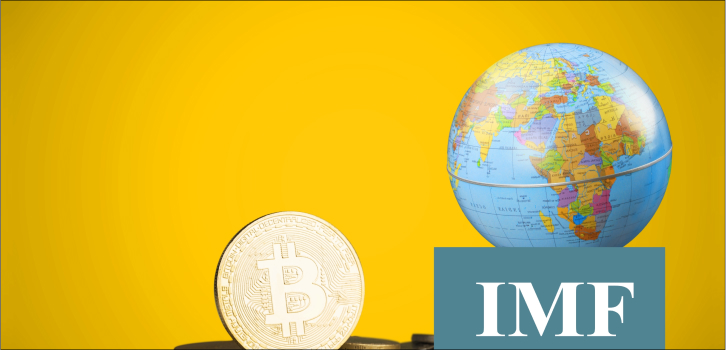Table of Contents
The International Monetary Fund’s new report talks of imposing “targeted restrictions” on crypto assets until the regulatory capacity can be built out to cope with them.
Even while admitting that some crypto assets have shown the potential to generate efficiencies in financial services, the recent IMF report on unbacked crypto assets is mainly concerned with stifling the crypto sector for long enough to be able to bring a regulatory straitjacket into place.
The report talks about the risks that it perceives that crypto brings, as in threatening consumer protections, financial integrity, and what appears to be even more worrying for the IMF, an increasing threat to financial stability.
The IMF explains once again that crypto assets cannot be considered as money given that they do not fulfil the three common functions of money. It states that crypto assets have a poor store of value, have little intrinsic value, and are likely to be used as speculative instruments akin to gambling.
Opinion
The first cryptocurrency came into existence precisely as a response to the terrible excesses of the fiat-backed financial system that has been in place throughout most of our lives.
Once President Nixon took the world’s reserve currency completely off gold backing in 1971 the central banks have had carte blanche to print their fiat currencies to oblivion. The more the currencies have been printed, the more the common person has seen their purchasing power dwindle.
Bitcoin was invented in answer to these dreadful excesses, and some of the cryptocurrencies that followed have been an experiment to try and replace such an unfit and unfair system.
If regulation is fair, encourages innovation, and is developed to control the bad actors within crypto, then it should be applauded. However, simply seeking to stifle the life out of crypto with onerous and costly regulations in order to stop it in its tracks and make way for the preferred option of central bank digital currencies (CBDCs), is not the way forward.
The IMF has a very tarnished history of exacting awful financial burdens on developing countries in exchange for loans. For this reason, and for many others it would not appear to be the best financial body to become involved in giving advice on the regulation of crypto.
The world is at a simply huge turning point. Fiat currencies and the governments and banks that wield them have brought us to the brink of financial collapse.
Cryptocurrencies can have a major impact on a new financial system. There is obviously a long way to go, but they have shown that the way forward is one where central bankers are not given complete control over individuals, and where everyone can own their money and spend it how they like.
Disclaimer: This article is provided for informational purposes only. It is not offered or intended to be used as legal, tax, investment, financial, or other advice.
Investment Disclaimer












